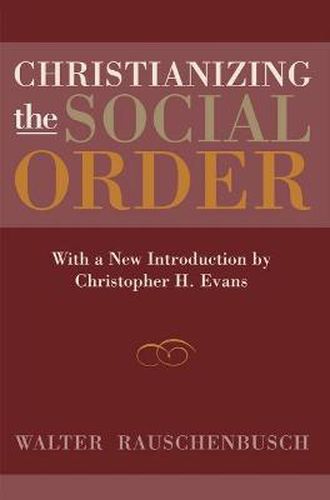Readings Newsletter
Become a Readings Member to make your shopping experience even easier.
Sign in or sign up for free!
You’re not far away from qualifying for FREE standard shipping within Australia
You’ve qualified for FREE standard shipping within Australia
The cart is loading…






Christianizing the Social Order is Walter Rauschenbusch’s most comprehensive study of the relationship between Christianity and social reform–most specifically for political and economic justice–and a follow-up to his best-selling Christianity and the Social Crisis. A pioneering work of what became known later in the twentieth century as
public theology,
Christianizing the Social Order asks
How can the fundamental structure of society be conformed to the moral demands of the Christian spirit?
First published in 1912, the classic work begins describing the social awakening of religious institutions at the time, then moves subject the then-present social order to moral analysis, and, finally, suggests methods of advance. With a message that is still much in need today and now with a new introduction by Christopher H. Evans, contemporary readers may be challenged anew and reflect on the ways Rauschenbusch’s legacy relates to the social, political and religious context of our time.
$9.00 standard shipping within Australia
FREE standard shipping within Australia for orders over $100.00
Express & International shipping calculated at checkout
Christianizing the Social Order is Walter Rauschenbusch’s most comprehensive study of the relationship between Christianity and social reform–most specifically for political and economic justice–and a follow-up to his best-selling Christianity and the Social Crisis. A pioneering work of what became known later in the twentieth century as
public theology,
Christianizing the Social Order asks
How can the fundamental structure of society be conformed to the moral demands of the Christian spirit?
First published in 1912, the classic work begins describing the social awakening of religious institutions at the time, then moves subject the then-present social order to moral analysis, and, finally, suggests methods of advance. With a message that is still much in need today and now with a new introduction by Christopher H. Evans, contemporary readers may be challenged anew and reflect on the ways Rauschenbusch’s legacy relates to the social, political and religious context of our time.